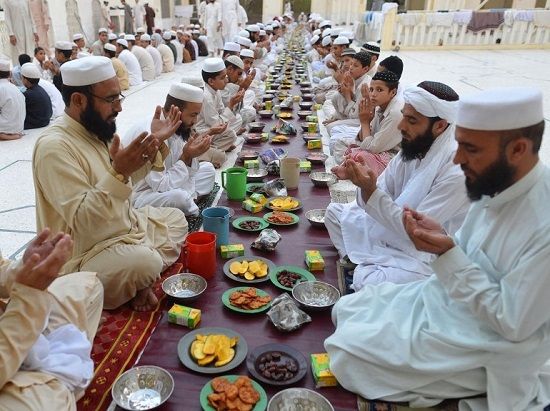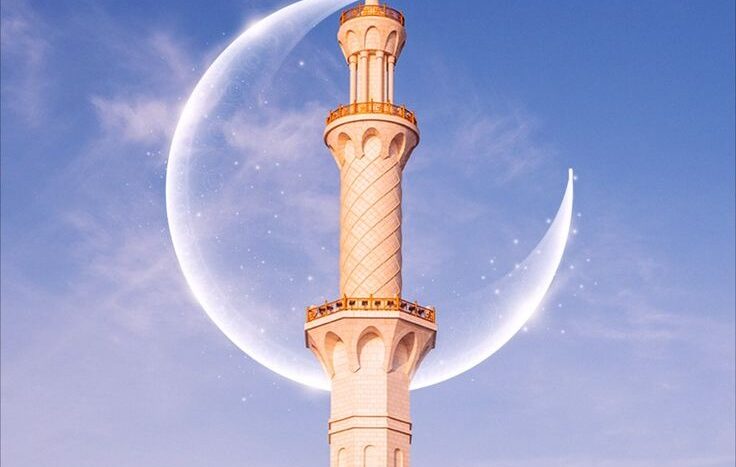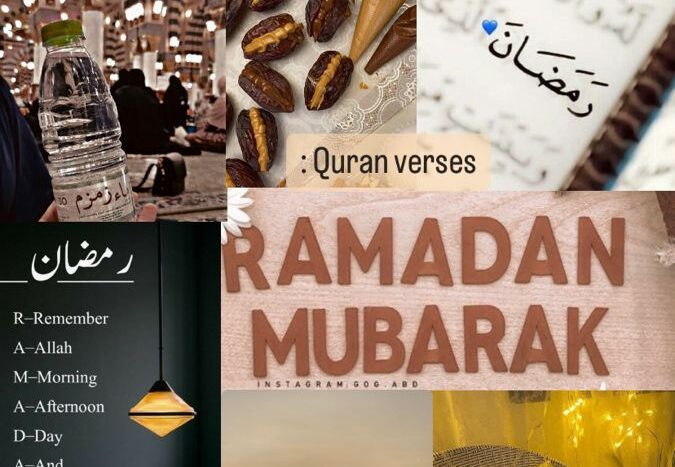Ramadan and its significance – A Month of Blessings

The Significance of this Month in the Islamic Calendar
Ramadan, the ninth month of the Islamic lunar calendar, holds immense significance for Muslims worldwide. It is a month of fasting, prayer, reflection, and community. Fasting is one of the Five Pillars of Islam that includes Tauheed (Tashad or Faith), Salat, Saum (Fasting), Zakat, and Hajj.
” It was the month of Ramadan in which the Quran was first sent down as guidance for all people, having in it clear proofs of divine guidance and the criterion for right and wrong. So whoever among you bears witness to the month shall then fast it.“
(Surat al Baqarah , 2:185).
“ye who believe! Fasting is prescribed to you as it was prescribed to those before you, that ye may (learn) self-restraint “
(2:183) [Yusuf Ali]
Common Misconceptions of Ramadan
A general mistake that we usually make is calling the name of the month Ramadan; rather, we should call it the month of Ramadan (Mah-e-Ramdan).
Hazrat Aisha (RA) asked: “O Messenger of ALLAH (PBUH), what is the meaning of ‘Ramadan’?” So the Messenger of ALLAH (PBUH) said: “O Humayra’, do no say “Ramadan” for verily Ramadan is a name from the names of Allah, rather say “month of Ramadan”. The meaning of the word ‘Ramadan”‘ is that [Allah] burns in this month the sins of His worshippers, meaning He forgives them.” (Ibn al-Saqri, Abu Tahir.
Mashyakhah (in Arabic). p. Vol. 1, Pg. 126, Nu. 52.)
Important Events of Ramadan
Some of the important events that occurred during this month are generally believed to include:
- In the 2nd Ramadan, the Torah was bestowed on Hazrat Mosa (AS), according to Islam.
- 10th of this month: the death of Khadija (RA), the first wife of Hazrat Muhammad (PBUH) and mother of Hazrat Fatima (RA).
- 12th Ramadan: According to Islam, the gospel was bestowed on Hazrat Essa (AS).
- 15th of the month: the birth of Hazrat Imam Hasan ibn Ali (RA).
- 17th Ramadan
- The birth of Ibn ʿArabi.
- Death of Hazrat Aisha Siddiqua bint Abu Bakr, wife of Hazrat Muhammad (PBUH).
- The Battle of Badr was won by the Muslims, who were only 313 in number, and fought against thousands of non-Muslims.
- On the 18th of Ramadan, Zabur was bestowed on Hazrat Dawood (AS).
- On the 19th of this month, Imam Ali (RA) was struck on the head during prayer by Abd al-Rahman ibn Muljam with a poisoned sword.
- 20th of this month, the Conquest of Makkah by Hazrat Muhammad (PBUH).
- 21st of this blessed month, the martyrdom of Hazrat Ali (RA).
Unique Characteristics Ramadan
- Its name: is Ramadan, the month of Ramadan, the month of Patience, and the month of Siyam.
- Look for the Hilal (moon).
- The doors of paradise are opened and the gates of hell are locked.
- The Shayateen are bonded.
- Ramadan is said to have been an important and holy month for Arabs long before the advent of Islam; in this month, local feuds and warring would stop as a period of uninterrupted peace was observed during which the more pious would retreat to temples, caves, and other spaces to meditate.
It was also the month when God revealed the scriptures to Ibrahim (AS) , the Torah to Musa (AS); the Psalms to Dawud (AS) and the Gospel to Essa (AS).
According to the hadith,
- Some special practices this month include eating a special pre-dawn meal called suhoor before starting the daily fast and then eating another post-sunset meal called iftar to end the fast.
- During this month, Muslims also take part in extra worship, the most visible of which is the late-night terawih prayers performed by Sunni Muslims, and the practice of i’tikaf—a form of spiritual retreat inside a mosque.
- Also, towards the end of this month, many Muslims make a special charitable donation called zakat al-fitr, which goes to the less fortunate so that they may also enjoy the festival of Eid al-Fitr at the end of this month.
- In this month, every night, Allah frees someone from Hell.
- During this month, a servant’s provisions are increased.
- During this month, a person must fast during the day.
- Whoever fasts during this holy month, anticipating Allah’s reward will have his sins forgiven.
- Whoever stands at night during this blessed month, anticipating Allah’s reward will have his sins forgiven.
- Fasting correctly gives a person taqwa.
- The Quran was revealed during this month.
- It’s legislated to stand in the congregation for a Sunnah prayer during this month.
- In this holy month, it is encouraged to give charity frequently.
- It’s strongly encouraged to perform I’tikaf during this month.
- The last ten nights are the best nights of the year.
- Lailultul Qadr is in this month
- Umrah during this holy month is equivalent to Hajj.
- Whoever stands during Lailultul Qadr anticipating Allah’s reward will have his sins forgiven.
- Zakat ul Fitr is paid
- A caller calls out every night during Ramadan, saying, “ Oh seeker of good, come on!” and “ Oh seeker of evil, cease.”
- The 3 Ashras on Ramadan;
- The first part reflects the Mercy of Allah (Rehmah)
- The second part reflects the Forgiveness of Allah (Maghfirah)
- The third part reflects Safety from Hell (Nijat)
The Spirit of Community and Solidarity
This month fosters a sense of community and solidarity among Muslims, encouraging acts of kindness, compassion, and generosity. From sharing meals with neighbors to participating in charitable initiatives, Muslims come together to support one another and strengthen bonds of brotherhood and sisterhood. The spirit of Ramadan transcends national boundaries, uniting believers in a shared commitment to faith and charity.
Embracing Challenges and Opportunities
While this month of blessing presents challenges for some, including those facing economic hardships or living in non-Muslim majority countries, it also offers opportunities for spiritual growth and self-improvement. By overcoming obstacles and embracing the teachings of this month, Muslims can deepen their faith, increase their devotion, and strengthen their connection to Allah. The month of Ramadan is a time of reflection, renewal, and transformation for all who observe its rites and traditions.
Conclusion
In conclusion, Ramadan holds a special place in the hearts of Muslims worldwide, serving as a time of spiritual renewal, community engagement, and devotion to Allah. As Muslims in Karachi, Lahore, Quetta, Peshawar, and Islamabad come together to observe the rituals of fasting, prayer, and charity, they embody the values of compassion, empathy, and unity that define Ramadan. May this blessed month bring peace, blessings, and spiritual fulfillment to all who seek its grace.


